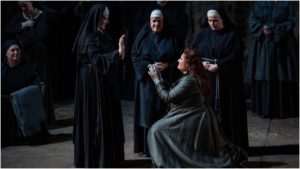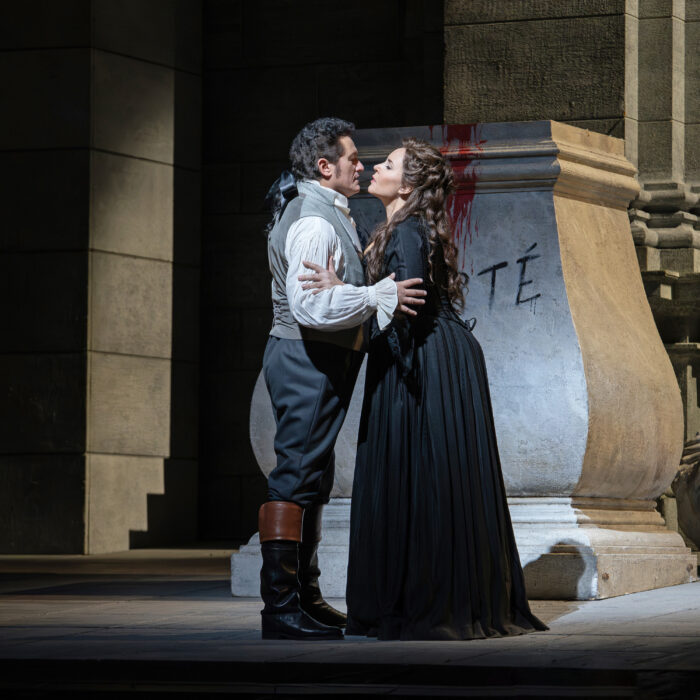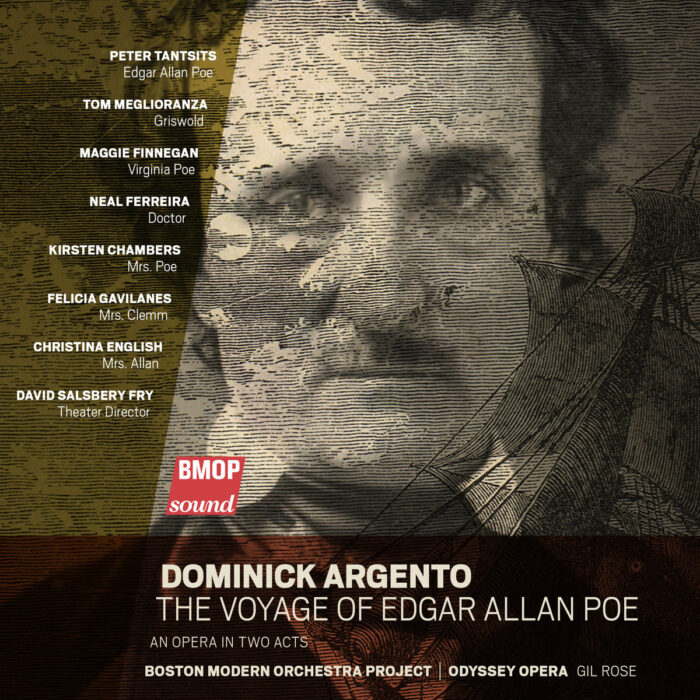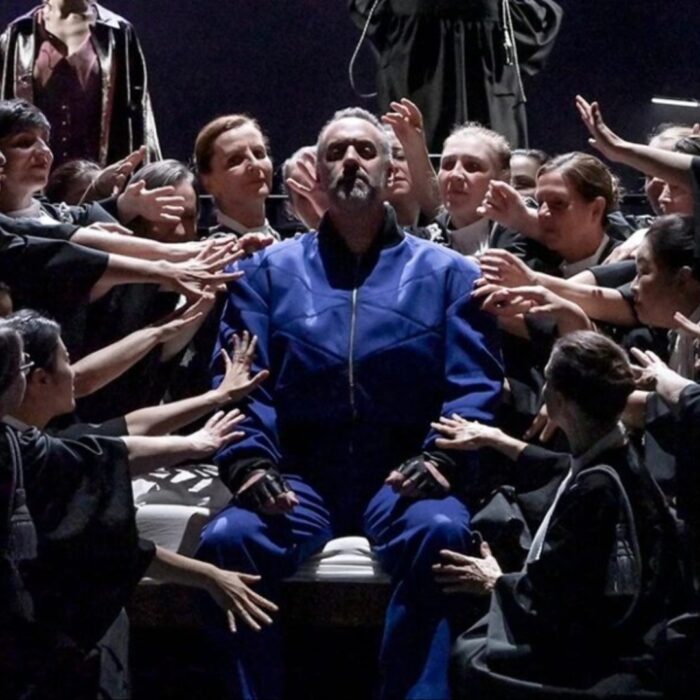
Lyric Opera of Chicago 2018-19 Review: Il Trovatore
Tamara Wilson Among Major Stars In Successful Revival of Verdi Classic
By Santosh VenkataramanVerdi’s “Il Trovatore” is an audience favorite and a timeless classic and seeing Sir David McVicar’s revival currently playing at the Lyric Opera of Chicago is like a step back into time.
The action is pushed forward a few centuries to Spain in the 19th with a dark and murky Goya-themed setting as the fitting backdrop for a tale of true woe among the four principals. Roy Rallo served as the director this go-around for a production designed to focus on the singers.
That “Il Trovatore” has rightfully earned its place in the repertoire, of course, is no thanks to the troublesome plot first carried out by famed Verdi librettist Salvatore Cammarano with additions made after his passing. Its success is rather because, as OperaWire puts it, “the entire piece is one famous musical number after another.”
In every review of “Il Trovatore,” it’s mandatory to recall Enrico Caruso’s famous line of it needing the four greatest singers in the world to be performed properly. That aphorism certainly checks out and it has a particularly illustrious history at the Lyric where Callas and Bjorling starred in the company’s first production.
When last seen there just four short seasons ago, that cast included Amber Wagner, Stephanie Blythe, Quinn Kelsey, and Yonghoon Lee. That’s a credible list, and with all due respect, the current cast may have outshined those illustrious colleagues with singing that was at its glorious best.
A Debutante, At Last
The major storyline with this “Trovatore” was the role of Leonora by soprano Tamara Wilson, who grew up in nearby Naperville but – in a nod to the vagaries of the opera world – had yet to sing at the Lyric. That is made even stranger because she has a long-time relationship with Lyric general director Anthony Freud from her studio days in Houston.
Even more so is that she is a noted Verdi performer who has sung 12 different roles, including a dazzling Metropolitan Opera debut as Aida four years ago in a production she revisited in New York just this past October in the famed Sonja Frisell Egyptian-themed edition.
Wilson lit up the stage right from her opening “Tacea la notte” about seeing the love of her life, negotiating the ups and downs with ease and beauty. One felt almost like it was a perfect merge between this singer and this role on an ovation-filled afternoon.
She went from the sweetness of an emotional “D’Amor sull’ali rosee” into the lower register “Miserere” with aplomb. It was a melodious, affecting performance that served as a paean to Verdi’s familiar music. She thrived in a return home that will go down as one of the more memorable runs of her career.
Good Enough For Caruso?
It would have been impossible, however, for Wilson to be head and shoulders above her castmates who were all excellent. Jamie Barton is one of the world’s great mezzo-sopranos and her Azucena was masterful.
Barton is a familiar face at the Lyric and her powerful voice complemented perhaps the best dramatic skills among the principals. Her Azucena was less fanatical and more a woman who has been severely damaged yet still has a bond with Manrico. Her fiery showpiece “Stride la vampa” was one of the highlights of the matinee.
The tenor Russell Thomas was an imposing Manrico. He adequately conveyed the depths of his emotions with a tender “Ah si! Ben mio” while his fiery “Di quella pira” was in stark contrast with determined intensity.
Baritone Artur Rucinski made his Lyric debut as the Conte di Luna, replacing George Petean due to illness in a move announced around a month before this run. Rucinski was a dashing Count who created conflicting feelings among the audience as the villain also in love with Leonora, never more so with a brilliantly sung “Il balen del suo sorriso” in Act two with his ardent cries of “Ah! l’ amor, l’ amor ond’ ardo.”
Everyone else was also terrific, starting with bass Roberto Tagliavini in his Chicago debut as Ferrando. The Ryan Opera Center artists, tenor Mario Rojas as Ruiz and the big-voiced contralto Lauren Decker as Inez, also provided glimpses of their potential.
On Top of Their Game
The Verdi specialist Marco Armiliato brought a lively pace to the proceedings and showed again why he is a conductor that is a favorite among singers as he helped bring out their best. The Lyric Opera orchestra was, as usual, scintillating in its own right.
Michael Black’s chorus is always outstanding and was up to the task in Verdi’s famed “Anvil chorus” that was the most vivid of the staging with shirtless gypsies honing their metalsmith skills. This production may be more “park and bark” than anything else, but with such fabulous musicianship on display, no one was complaining.


